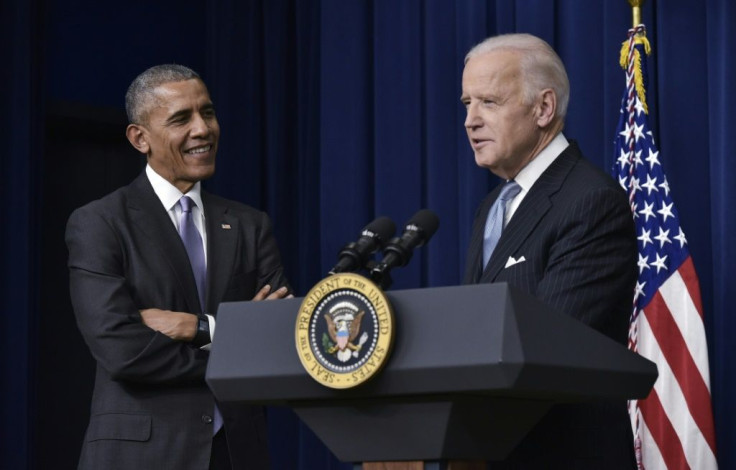How To Spot The Real Leader Of Democratic Party?

KEY POINTS
- Joe Biden, Nancy Pelosi, and Chuck Schumer have offered conflicting policy visions
- Young voters overwhelmingly prefer politicians like Bernie Sanders and Elizabeth Warren
- The lack of consensus on a party leader reflects the large age gap amongst Dem voters
House Speaker Nancy Pelosi, D-Calif., Senate Minority Leader Chuck Schumer, D-N.Y., and presumptive Democratic presidential nominee Joe Biden are the most powerful public figures in the Democratic Party, but the lack of a clear vision of governance on the left raises the question as to who is the leader of the Democrats.
Sen. Bernie Sanders, I-Vt., ran a progressive presidential campaign that captured the imagination of young voters, as Democrats under the age of 50 overwhelmingly backed his campaign over Joe Biden’s. Super Tuesday exit polls from ABC/Washington Post reveal a massive split in the party, as just 17% of voters aged 18 to 29 and 23% of those between 30 and 44 voted for Joe Biden. Latino voters broke hard for Bernie Sanders, while black voters supported Joe Biden en masse. The primary revealed not only a split in Democratic leadership but in Democratic voters.
Which begs the question: who is the leader of the Democratic Party? Typically, parties take their cues from their presidents, and for a party out of power in the White House, it usually falls to a congressional leader. Ahead of the 2018 midterms, former Obama spokesman Kevin Lewis said: “President Obama is a dynamic speaker — he’s someone who can speak to the real ideals which makes us all Americans, but he’s not — if you ask him — he’s not the leader of the Democratic Party.”
Lewis pointed to Pelosi and Schumer as leaders in the party, but polling at the time showed that Democratic voters were evenly split as to whether or not the Democratic House should keep Pelosi as its leader after the midterm elections. The situation was even worse for the Democratic leader in the Senate, as Chuck Schumer found his approval rating with his New York constituency at its lowest point in 20 years in early 2018.
While both Schumer and Pelosi have gained popularity since the Democratic landslide in the midterm elections, the underlying data still reveals that the generational split taking place among voters in the party translates to who they want to lead them. The primary proves that young voters overwhelmingly want a progressive like Sanders or Elizabeth Warren to be the face of the party, which leaves Biden in a bit of a strange position. As the presumptive nominee, the responsibility to speak on behalf of Democrats should fall to him, but the primary results prove that in general, Biden only speaks for Democratic voters over the age of 50.
So, who steers the party? Nobody. On the same day that Chuck Schumer proposed a largely superfluous bill to stop President Trump and Vice President Pence from putting their names on checks, Pelosi made waves by floating a progressive idea popularized by Andrew Yang, saying that a minimum guaranteed income may now be “worthy of attention.”
Joe Biden recently made poorly received policy overtures to the left by proposing to lower the Medicare age to 60 (which is five years older than what Hillary Clinton proposed lowering it to in 2016) and a means-tested college tuition forgiveness program. The youth-driven pushback to Bill Clinton-era Democratic policy is being driven in Congress by Representatives like Alexandria Ocasio-Cortez, and many voters under the age of 50 would likely point to her as their preferred leader of the party.
There is a vast policy disagreement on the left as to how to best proceed in an era defined by widespread discontent with the status quo, and these fights are playing out in public. Biden emerged victorious from the Democratic primary, despite Democratic voters overwhelmingly supporting two large progressive programs staunchly opposed by Biden in Medicare for All and the Green New Deal, which suggests that policy and its relative importance to a vision of governance is the dividing line in the Democratic Party.
Polls indicate that voters under the age of 35 are the only Democratic cohort who prioritize policy more than amorphous displays of “leadership,” which likely explains how Biden was able to win with ease despite opposing two major programs overwhelmingly supported by Democratic voters. Until a majority of Democratic voters can agree on how they want their leaders to govern, it is unlikely that even if Biden wins the presidency that there will be broad-based agreement about who is the Democratic “leader” going forward into an era defined by rapid change and a deviation from the status quo.
© Copyright IBTimes 2025. All rights reserved.




















